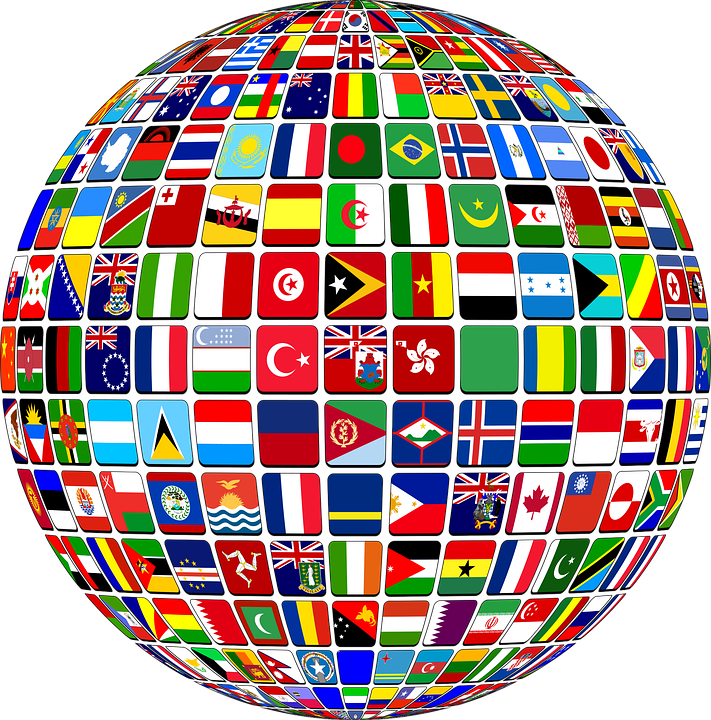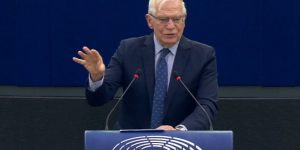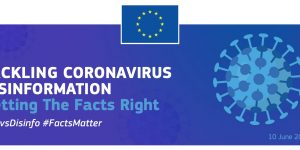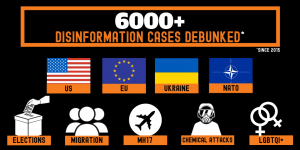By: Adis Nadarević
If you come across the news that the Bosnia and Herzegovina flag was selected as the third most beautiful flag in the world, wait a moment before you share it on social media. Sure, it is nice to read that the BiH flag ranks so high on the esthetic scale and that it has attracted so much media attention; however, this was not a case of the expert opinion.
Articles with headlines such as „The flag of Bosnia and Herzegovina among the three most beautiful in the world“, „The flags of BiH and of Croatia are among the ten most beautiful in the world“, „The word of an expert: BH flag among the 10 most beautiful in the world“could be lately found in social media feeds. This is in fact an echo of the 2016 news which is still being recycled despite being false. The news that the flags of our country and Croatia were selected among the ten most beautiful in the world a not completely untrue – the problem is the importance it was given by online portals in these two countries.
The way in which our media obtained and further shared this news is a benign, but an excellent example of how fake news are sometimes generated and spread, something that the public is less and less immune to. Let’s start with emotions and trust.
Emotions are key in spreading disinformation and fake news. Our flag – a symbol of us and our country– selected among the most beautiful in the world! This is exactly a type of emotion those creating fake news count on, as they know that people often put emotions before the facts.
Even people who have knowledge about the mechanisms of spreading false content make mistake in by relying on another very important thing, and that is trust. At this time of quick flow of information and a race in reading ratings, the news are sometimes spread without being checked or additionally checked as the previous source in news sharing chain is taken for an authority and the assumption is made that someone there had already checked that information. And, as a saying teaches us, an assumption is the mother of all … let’s say omissions.
The goal of this text is by no means to mock individual media or to present them as disseminators of fake news. This is why it does not contain specific names, except the link to the media report containing the original text of the news. Its misinterpretation may prompt someone stating during a debate on esthetics of flags: „ What do you know, the leading expert in the world said that only Congo and Papua New Guinea had the flags more beautiful than ours.”
However, to ensure a lack of linked resources does not compromise the truthfulness of this article, the parts of the analyzed texts are used which one can further search online, playing in that way the game of fact-checking themselves. According to one of the quotes, „Johnny Sharples is most probably the biggest expert on the world’s flags“, which you can enter in Google right now. Your search results will include articles by a number of quite respectable portals that trusted, without checking at all, that a columnist of the entertainment portal Joe.co.uk is in fact the the greatest expert on flags in the world. To make things worse, not even his name was spelled correctly.
Regardless of whether the man’s name is Johnny or Jonny, which is correct spelling of his name, the fact is that a simple search online reveals that he is not a flag expert and a combination of „Johnny/Jonny Sharples flags expert“ does not produce any results. If he really were the world’s greatest vexillologist, Google search would have certainly displayed an article on him, a link to his work or perhaps an announcement of a lecture. In this case, none of this occurs, you may only come across the fact that there was a football player John Sharples who spent one season on the bench of the Manchester United before ending his career playing in the Scottish league.
Footballer John Sharples has nothing to do with the John Sharples – or Jonathan Gabriel „Jonny“ Sharpless – referenced in our media as someone who: „ guessed all 197 flags of the world countries on the quiz „Flags of the World“ several times.“ If you have searched this quote in Google, you may be amused how online media missed satirical tone of this content and took the author’s self-ironic joke as confirmation of his credibility. Namely, the fact that you guessed all flags on an Internet quiz several times does not make you a vexillologist any more than a thousand levels passed on Candy Crush makes you a pastry expert.
It is equally amusing that certain portals further published explanation as to why exactly BiH flag was selected among ten most beautiful: „Anyway, the most beautiful is the contrast between the blue and the yellow, the same that makes the Boca Juniors jersey famous“. As proverb say, every man to his taste, but also shouldn’t a credible expert have some criteria and standards more plausible than a comparison with the jersey of an Argentine club that gave us Diego Maradona and Roman Riquelme?
There is also a specific reference according to which „Jonny Sharples is a member of a British Flags Institute“. It doesn’t take much googling to find out that the Flags Institute is a serious association gathering all sorts of people interested in flags, with its branches throughout the world. For a fee of thirty-seven pounds you can become a member of the British Flag Institute too, and the world’s famous expert, as well as a subscriber of Flagmaster, the Institute’s official quarterly newsletter published on twenty-four full color pages.
It’s hard not to make fun of a situation in which an article about flags to the taste of one person was interpreted and published as an expert opinion. Something that makes this benign omission of many portals particularly interesting is that the author’s humorous account of his own competence was taken as a confirmation of his credibility, without any verification even though that should have been a very simple process in this particular case.
Any more serious attempt to check this content would show that Jonny Sharples describes himself on his Twitter profile as an online joker. He recently proposed putting a photo the Leicester’s Harry Maguire riding on an inflatable unicorn on the new £50 bill. His statement of this particular initiative explains that no bills issued so far depicted a Mundial semi-finalist floating on a mythical being, which received more online votes than many important Brits. One may say that after Brexit the British do not seem take a notion of plebiscitary vote very seriously, but this is not the subject of this text.
What is really interesting for us is the mechanism of creating and spreading disinformation; and such a fun article which caused no serious harm in public was an excellent example of how important fact-checking is. Let us ask ourselves: how much false information we consume from media because we do not check facts, but take them as facts on which we build our views that might had been different had we checked something that we took for granted at the very beginning.
The times we live in offers us so many possibilities to access information that none of us can be excused for being uninformed. Anyone with access to the Internet and some common sense can be a fact-checker, and it is only a question whether we want let others do the thinking for us or whether we use one of the greatest gifts we were given, the ability to reason.
Finally, to avoid leaving even the slightest room for error, I contacted Jonny and asked him if he knew how his article was received in the Balkans. The answer I received was that he appreciated the fact that we considered him the world’s greatest flag expert, but that, besides his love for nicely designed flags, he had no expert capacity in that field. He also told me that anyone can be a member of the Flags Institute and by doing so he also confirmed that with a little effort, any information can be tested, confirmed or disputed.
This is why it is important to respect your own intelligence and ask questions, or if nothing else, don’t trust just the packaging.
#FactCheckingMatters.
#NeVjerujNaPrvu is the project of the European Union in Bosnia and Herzegovina.
The content of this article is a sole responsibility of the author and does not necessarily reflect the views of the European Union.




